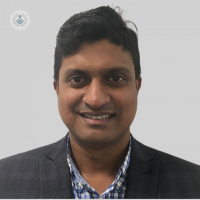FAQs about ADHD: what you need to know
Written in association with:ADHD, meaning attention-deficit and hyperactivity disorder, is a neurodivergent condition with many characteristics that can prevent a person from engaging appropriately with work and school, and they may find it difficult to upkeep domestic chores and social relationships – cumulating in what is called executive dysfunction. It is a condition without a cure and people are only born with it; it cannot be contracted. We spoke to Dr Azmath Khan, a leading consultant psychiatrist, about the frequently asked questions about ADHD, and what is most important to understand about it.

The National Institute for Health and Care Excellence has estimated that around four per cent of the world’s population has ADHD, with the likelihood that this condition is still mis- and underdiagnosed for many people. Furthermore, women and girls are known to be diagnosed less than boys and men, with a ratio of five-to-one. Women with ADHD may go far into adulthood without ever getting diagnosed. Women and girls are more likely to exhibit inattentive ADHD with internal symptoms, whereas men and boys most often display external symptoms of hyperactive-impulsive ADHD – and as ADHD was historically mischaracterised as a “male” condition, this gender bias prevents women and girls from getting the treatment they may need.
What kinds of ADHD are there, and what are the symptoms?
There are three subtypes of ADHD: inattentive, hyperactive-impulsive, and mixed.
Inattentive ADHD is characterised by:
- Being easily distracted
- Being daydreamy
- Being forgetful
- Being disorganised
- Careless mistakes
- Switching or abandoning tasks frequently
- Being unable to listen well or carry our instructions
Hyperactive-impulsive ADHD is characterised by:
- Talkativeness
- Restlessness and fidgeting
- Difficulty waiting
- Interrupting conversations
- Risk-seeking behaviour
- Difficulty concentrating
People who have mixed ADHD will exhibit characteristics of both of the other types in combination.
What causes ADHD?
There is no definite cause of ADHD. There are theories that it is genetic, and that children will inherit from their parents directly. Through research into the neurobiology behind ADHD, there are theories about how it affects brain structure, with selected areas in the brain being smaller or bigger in people with ADHD. Other theories say ADHD is linked to an imbalance of the neurotransmitters in the brain, namely a lack of serotonin which is responsible for mood, appetite, libido, and sleep.
How is ADHD treated?
When ADHD goes undiagnosed and untreated, it can have adverse effects on a person’s mental well-being as their symptoms begin to affect their work, personal lives, hygiene, and relationships. It is common for people with undiagnosed ADHD to also experience anxiety and depression. However, ADHD can be treated with counselling to help supply the patient with tools to work around and manage their symptoms, such as organisational skills and coaching on social conduct. For example, cognitive behavioural therapy (CBT) can help patients unlearn toxic habits and engage with productive structures for their lives.
Medication can help people with ADHD focus and ignore distractions, which is why it is the most recommended for students and workers. ADHD medicines are typically stimulants, which may seem counterproductive, but they work by increasing neurotransmitters like dopamine and norepinephrine so that the brain doesn’t feel like it’s lacking these things, helping stifle disruptive behaviours and increase attention span.
If you are struggling with ADHD or an undiagnosed neurodivergent condition, book an appointment with Dr Khan via his Top Doctors profile.


